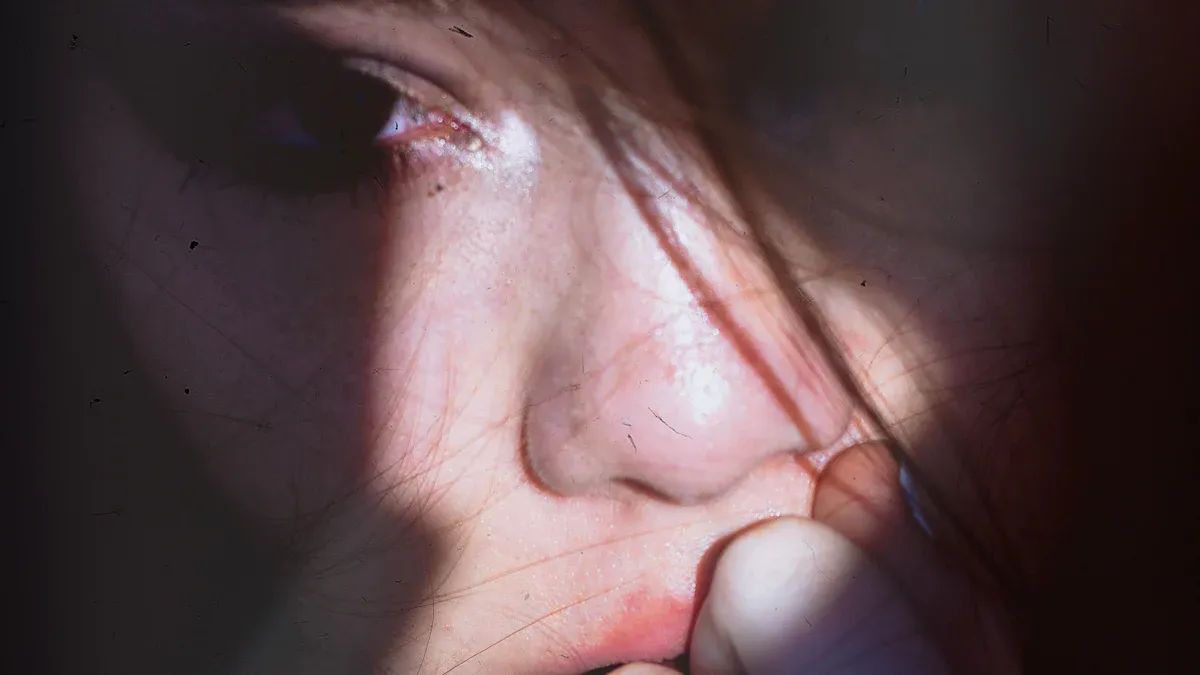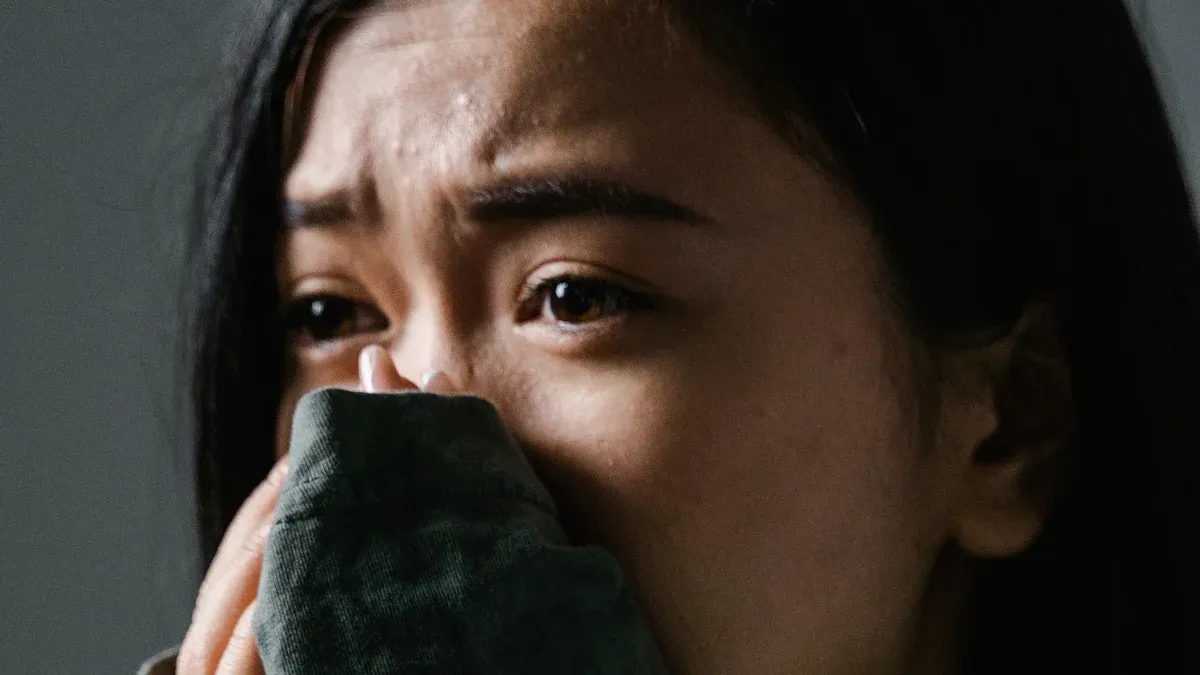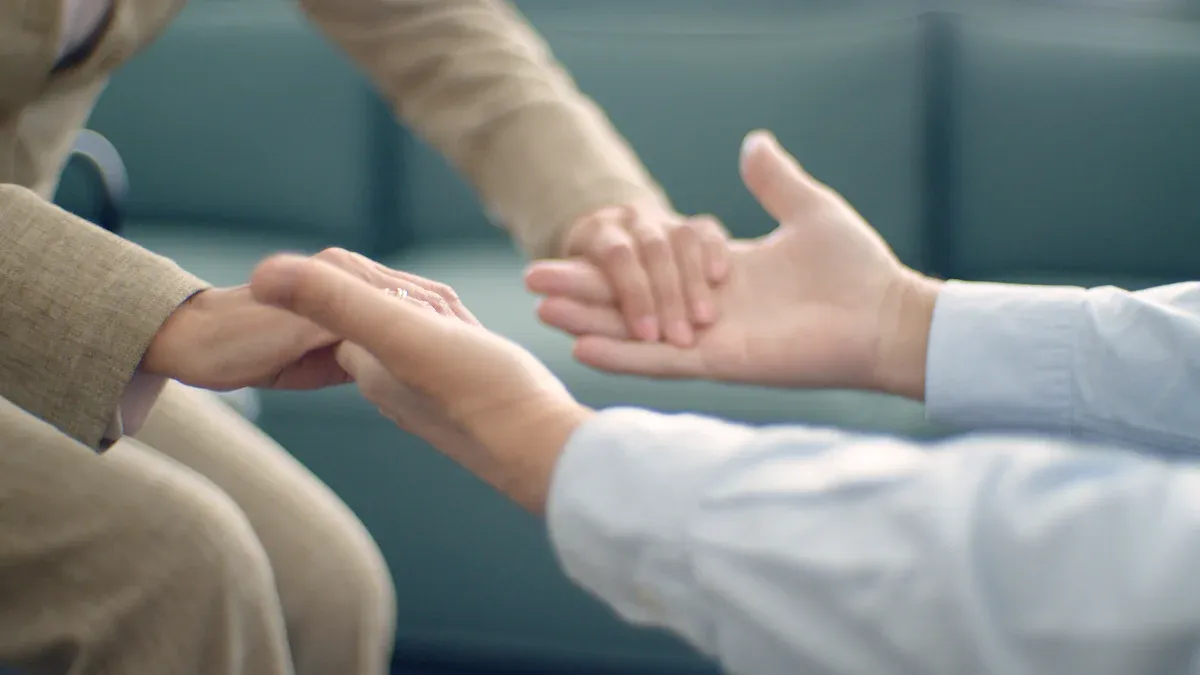How Intermittent Reinforcement Creates Trauma Bonds

Why Intermittent Reinforcement Fuels Trauma Bonding in Abusive Relationships
You might feel stuck in a relationship that goes from pain to kindness. These sudden changes can make strong emotional bonds. This is called the intermittent reinforcement trauma bonding cycle. You may find leaving is harder than staying. Emotional dependence gets stronger when kindness shows up sometimes. You might hope things will improve, or worry people will judge you if you leave. Knowing these patterns is the first step to getting out. You deserve help and to heal.
Key Takeaways
Intermittent reinforcement in abusive relationships causes confusion. You might feel happy when the abuser acts nice. But you feel scared again when they are mean.
It is important to notice signs of trauma bonding. If you feel trapped, blame yourself, or hide the abuse, you may have a trauma bond.
Getting help is needed to break free. Therapy and support groups can guide you. They help you heal from trauma bonds.
Taking care of yourself matters during recovery. Try to build healthy relationships. Be kind to yourself every day.
You are not alone in this fight. Many people go through trauma bonds. Support from others can help you heal.
Not Sure If You Are Been Gaslighted?
Sometimes it's hard to recognize gaslighting and emotional manipulation. Our Gaslighting Check app helps you identify patterns and provides personalized guidance based on your specific situation.
Try Gaslighting Check App NowIntermittent Reinforcement Trauma Bonding Cycle

Unpredictable Abuse and Kindness
Sometimes, you feel confused and stuck in this cycle. The abuser can be mean, then suddenly nice. You never know what will happen next. You hope for kindness, even after being hurt. The abuse does not follow a clear pattern. You feel happy when the abuser is loving. But you get scared again when the abuse starts.
The cycle often looks like this:
Tension grows between you and the abuser.
Abuse happens, and you feel pain and fear.
The abuser acts sorry or kind, starting a "honeymoon" phase.
You feel thankful for the kindness and hope things will get better.
The cycle repeats, so leaving feels hard.
This trauma bonding cycle uses tricks to keep you close. Here are some ways it works:
Intermittent reinforcement gives rewards only sometimes, so you try harder to get them.
You may feel confused inside. You try to understand why the abuser is both mean and nice, so you make excuses for them.
The mix of fear and love makes you anxious. Kind moments bring relief, so you feel closer to the abuser.
A table from studies shows how abuse and kindness create strong emotional ties:
Measure | Time 1 | Time 2 | Change |
|---|---|---|---|
Attachment | Significant correlation | Decreased by 27% | - |
Trauma symptoms | Significant correlation | - | - |
Self-esteem | Significant correlation | - | - |
Variance explained by relationship variables | 55% | - | - |
You might start to feel sorry for the abuser. When they act sorry, you feel thankful. This makes the trauma bond even stronger.
Emotional Highs and Lows
The ups and downs in this cycle affect your feelings and body. You feel alone and worthless during abuse. When kindness comes, you feel hope and relief. These changes feel like a roller coaster.
You may have low self-esteem and bad relationships.
You can get headaches or stomach aches.
Long-term trauma can cause depression, anxiety, or post-traumatic stress disorder.
Kids who face emotional abuse may have problems as adults.
This cycle creates a strong emotional tie. You start to rely on the abuser for comfort, even though they hurt you. Your brain learns to look for relief from the abuser. This changes how you see danger and yourself. It can be hard to break free because your mind links healing with the abuser’s kindness.
Tip: If you notice these ups and downs, you are not alone. Many people in abusive relationships go through this trauma bonding cycle. Seeing these patterns is the first step to healing.
What Is Trauma Bonding?
Trauma Bonds Explained
You might wonder why you care about someone who hurts you. Trauma bonds happen when abuse is mixed with kindness. Experts say trauma bonds are how your mind reacts to abuse. You start to rely on the abuser for comfort, even though they hurt you. This cycle brings strong ups and downs in your feelings. You may feel mixed up and think the abuse is your fault. Many people do not know they are in an abusive relationship because kindness makes the pain seem less real.
"Trauma bonding is hard to handle alone. Getting help from a professional can be very important when you want to break the cycle." – Dr. Carolyn Rubenstein
Recent studies show trauma bonding happens a lot in abusive relationships:
About 18% of women in violent relationships have strong trauma bonding symptoms.
Older adults often have stronger trauma bonds.
People who need answers quickly have stronger trauma bonds.
Abuse from a partner can cause mental harm and make you depend on love.
Trauma bonds are not the same as healthy bonds. You can see the difference in this table:
Trauma Bonds | Healthy Bonds |
|---|---|
Big ups and downs, dependency, manipulation | Respect, support, trust, open talk |
Cycles of stress and confusion | Safety, stability, growing together |
Often in abusive or controlling situations | Built on shared values and understanding |
Trauma bonds can make you feel sorry for the abuser. You may feel stuck and think you need the abuser to heal.
Why Trauma Bonds Are Hard to Break
Breaking trauma bonds is tough for many reasons. Sometimes, the abuser is nice, so you hope things will change. You remember good times and forget the bad ones. Childhood trauma can change how you see love and safety. You may not notice unhealthy patterns in relationships. Low self-esteem and wanting approval make it hard to set limits.
People often get trauma bonding wrong:
Some think trauma bonding is only about abuse and emotional tricks.
Some believe bonding over shared trauma means a caring relationship between people with similar problems.
Some people think trauma bonds are not serious or can be fixed alone. Trauma bonds involve control and power, not respect. You may feel trapped, but you are not alone. Seeing trauma bonds is the first step to healing.
The Psychology of Trauma and Addiction
Brain Chemistry and Emotional Dependency
Your brain reacts in strong ways to trauma and kindness. When you are abused, your body makes cortisol. This causes stress and confusion. When someone is kind, your brain makes dopamine and oxytocin. These chemicals make you feel happy and close to your abuser. You start to want their approval, like someone wants a drug. You feel you cannot live without them. If you try to leave, you may feel anxious or sad.
Your brain’s reward system focuses on the abuser. You feel a strong need for them. Leaving feels very hard. This is more than co-dependence. It is a deep emotional tie made by trauma bonds.
Here are some changes that happen in your brain:
Cortisol goes up when you feel stress. This causes mood swings.
Dopamine makes you feel good when the abuser is nice.
Oxytocin helps you bond, so you want to stay close even if it is not safe.
You may feel mixed up about your feelings and who you are. Many people in trauma bonds feel anxious, sad, and lost. You might make excuses for the abuse and feel loyal to your abuser. These patterns make it hard to heal without help.
Psychological Consequences | Description |
|---|---|
Confusion | You often feel unsure about your feelings and the relationship. |
Self-Doubt | You question your worth and decisions. |
Emotional Dependency | You rely on your abuser for comfort and support. |
Feelings of Worthlessness | You may feel you do not deserve better. |
Anxiety and Depression | Ongoing trauma can cause mental health problems. |
Loss of Self-Identity | Your identity may become tied to the abuser. |
Rationalization of Mistreatment | You make excuses for the abuse and feel misplaced loyalty. |
Cycle of Abuse | The repeated abuse strengthens trauma bonds. |
Resignation and Submission
You may feel you cannot change your life. You start to do what your abuser wants to avoid fights. You give in because you want to stop more pain. You depend on your abuser for money and feelings. Over time, you forget your own needs to keep things calm. This is called "fawning." You do what the abuser wants, hoping to avoid problems.
Culture can also affect trauma bonds. If you lose cultural support, healing is harder. Trauma can pass down in families. This happens with Holocaust survivors, refugees, war veterans, and Indigenous groups.
If you see these patterns, you can get help from trauma-informed therapy. Therapy helps you understand your feelings and teaches you how to break free. You can join support groups, talk to a counselor, and practice self-care. Trauma-informed therapy focuses on safety and respect. It helps you rebuild who you are and start to heal.
Tip: You do not have to face trauma bonds alone. Therapy and treatment can help you heal and give you hope.
Breaking Free from Trauma Bonds

Recognizing the Signs
You might wonder if you are in a trauma bond. Many people in abusive relationships feel mixed up about their feelings. Mental health experts have found signs that show trauma bonds. If you see these signs, you are not alone.
You go through times when the abuser is very nice, then mean.
You feel bad or blame yourself for what is happening.
You hide or lie about the abuse.
You watch for danger or mood changes all the time.
You feel cut off from friends and family.
You do not like the abuser but cannot leave.
You forget who you are in the relationship.
You want to leave but find it very hard.
The abuser tries to get you back after you leave.
You think about the abuser even after it ends.
If you notice these signs, you might have trauma bonds. Seeing these patterns is the first step to getting better.
Steps to Break the Cycle
It takes bravery and help to break trauma bonds. You can take steps to start healing. Many people use therapy, support, and self-care to get out of the cycle. Here is a table with steps that can help you:
Step | Description |
|---|---|
Individual Therapy | You can talk about your story, work through trauma, and learn ways to cope in a safe place. |
Group Therapy/Support Groups | You can meet others, share your story, and get support from people who understand. |
Crisis Intervention Services | You can call hotlines for quick help, support, and information about resources. |
Collaboration with Professionals | You can get help from shelters, legal aid, and other services by working with experts. |
You can also try these self-care ideas:
Get help from a professional to guide your healing.
Learn ways to handle the effects of trauma.
Make healthy friendships that help you recover.
Tip: You do not have to do this by yourself. Many people find help in support groups and therapy. Taking small steps every day can help you move forward.
Support and Professional Help
Support from others is very important when breaking trauma bonds. Studies show that having people who care helps you heal from trauma. When you have support, you do not feel so alone. Group therapy and community programs let you share your feelings and find hope.
Evidence Summary | Findings |
|---|---|
Social support is essential for PTSD recovery | Not having support makes PTSD worse, but good support helps you heal. |
Organized social support is necessary | Healing works best with planned support and sharing feelings. |
Current support may not prevent PTSD | Even with support, PTSD can still happen, so new ways to help are needed. |
Getting help from a professional is also key. You can talk to a therapist to learn about trauma bonds and new ways to cope. Trauma-informed therapy gives you a safe place to talk without feeling bad or judged. A therapist can help you build a strong support group and teach you how to care for yourself. Learning about trauma bonding helps you know when to ask for help.
Working with a therapist helps you find and meet your emotional needs.
Therapy helps you make healthy support groups and learn self-care.
Healing from trauma takes time, patience, and special care from a trauma-informed therapist.
A therapist can help you deal with emotional ties without shame or blame.
It can take a long time to heal from trauma bonds. Some people have anxiety, depression, or PTSD for a while. Others have low self-esteem, health problems from stress, or trouble trusting people. You might feel alone or find it hard to make healthy friendships. Treatment and trauma-informed therapy can help you find yourself again and feel hopeful.
Note: Healing is possible. You deserve care, respect, and support as you heal. Trauma-informed therapy and treatment can help you take back your life.
Intermittent reinforcement makes you feel stuck with your abuser. You might want their approval and feel hopeful when they are nice. It is hard to leave because your feelings are strong. Many things make leaving tough, like fear, money problems, and love. Getting support and taking care of yourself can help you heal.
Recovery Tool | Benefit |
|---|---|
Therapy | Helps you feel better about yourself |
Social Support | Makes PTSD less likely and helps you heal |
Self-Compassion | Fights shame and helps you get better |
You can get away from the abuse. Healing begins when you notice the problem, get help, and are kind to yourself. You should feel safe and have hope for a good future.
FAQ
What is intermittent reinforcement in abusive relationships?
Intermittent reinforcement means you only get kindness sometimes. The abuser is nice, then mean again. This makes you hope for good times. It also makes leaving feel very hard.
How do trauma bonds affect your self-esteem?
Trauma bonds can make your self-esteem go down. You might think you deserve the abuse. You may blame yourself for the problems. Over time, you lose confidence and feel you do not deserve love.
Can trauma bonds happen in friendships or families?
Yes, trauma bonds can happen in any relationship. You might see them with friends, parents, or brothers and sisters. The mix of kindness and hurt makes strong emotional ties. This does not just happen in romantic relationships.
How can you support someone in a trauma bond?
Listen to them without judging. Offer help and remind them they should be respected. Share things like hotlines or support groups. Encourage them to get professional help when they are ready.